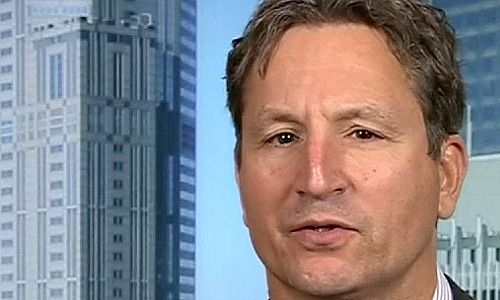A major Credit Suisse investor raised its stake again recently to just behind the Swiss bank’s largest shareholder, the state of Qatar. Does the move foretell a shift in priorities for the crisis-hit bank?
Chicago-based fund manager David Herro is a longtime observer of Switzerland’s major banks, and no stranger to crises.
Herro, who oversees nearly $30 billion for Harris, invested in UBS before the financial crisis of 2008-09.
Quietly Higher
Harris’ stake in Credit Suisse has quietly edged higher in recent months to just over 10 percent overall recently, second only to Qatar’s holdings.
The American mutual fund’s stake is roughly equal to that of Olayan, a wealthy family in Saudi Arabia which has been a Credit Suisse shareholder for decades and holds stock, options and capital instruments.
The subtle difference is that Qatar’s position, unlike that of Harris and most shareholders, is largely made up of two capital instruments which pay a hefty annual coupon – 9 and 9.5 percent, respectively.
Juicy Coupon
Qatar is represented by 33-year-old Jassim Bin Hamad J.J. Al Thani on Credit Suisse's board. Outsiders aren’t privy to board meetings and the bank itself is understandably mum about how criticism of strategy is handled at the highest echelons.
However, Qatar was willing to back an investment banking strategy well into 2015, when most European rivals had already pulled back from trading and riskier areas which had become far more cumbersome to underpin with capital.
This was taken by Credit Suisse executives and shareholders alike that the Gulf state was at times more interested in the juicy annual coupon from its capital instruments than the bank’s long-term strategy.
Herro's Track Record
Al Thani has spent his career in finance and private equity, but is reportedly better known for regular cigarette breaks during Credit Suisse board meetings than being an influential and opinionated voice of the body, which has been criticized itself as well.
That may change with Harris wielding more influence, going by fund manager Herro’s track record at other firms.
He began quietly building a stake in UBS in 2007, then threw his weight behind efforts by hedge fund Olivant to agitate for change at the bank.
Supporting Olivant's Push
Led by former UBS head Luqman Arnold, Olivant was at least partly successful in its efforts at UBS: the bank’s lawyer-turned-chairman Peter Kurer stepped down following opposition marshaled by the activist investor.
Olivant later suffered a painful setback in its battle for the Swiss bank after it it effectively lost its UBS shares when Lehman Brothers went under – the U.S. investment bank had been the hedge fund’s prime broker.
Arnold and Olivant had also pushed for UBS to consider offloading some businesses and consider splitting investment banking and private banking. The bank never split, choosing instead to begin scaling back its riskier investment banking arm in 2012.
Saatchi & Saatchi Success
Herros biggest splash came in 1994, two years after he joined Harris, when he successfully pushed for the ouster of Maurice and Charles Saatchi from the eponymous ad agency founded by the brothers.
He followed that feat of chutzpah by pushing for management changes at Cordiant Communications, one of the firms that Saatchi & Saatchi split into.
Herro, who has also accumulated a stake worth more than $1.5 billion in Swiss commodities giant Glencore, told finews.ch that he has no plans to join Credit Suisse’s board, and the bank itself didn’t comment.
Gentle Rebuke of Thiam
To be sure, Harris has been unwavering and vocal in its backing of Credit Suisse’s strategy and of Tidjane Thiam. There are indications that he is not pleased at its execution however: he used a «New York Times» story to remind Thiam to soften his personal style.
Herro isn’t just any fund manager: he was named Morningstar's international stock fund manager of the decade in 2010. The award measures mutual fund managers who generate better risk-adjusted results over a ten-year period and have a track record of serving shareholders well.
His message undoubtedly sat with Thiam, who had met with Herro in the same month as the missive: never one to suffer fools gladly, the Credit Suisse CEO bristled visibly when asked publicly last month about the gentle rebuke.
Vocal Advocate
What does Herro’s increased stake mean for regular investors? At the very least, shareholders can expect a more vocal advocate for shareholder value than Qatar or the Olayans, who watched as the bank squandered valuable time until it finally decided to restructure.
Along with Frankfurt-based Deutsche Bank, Credit Suisse now finds itself the sick man of European banking.
This is not least because of a board which slow to recognize the need for a new strategy, much less eventually mandate and vet one. It is difficult to imagine Herro sitting by idly in similar fashion.


































